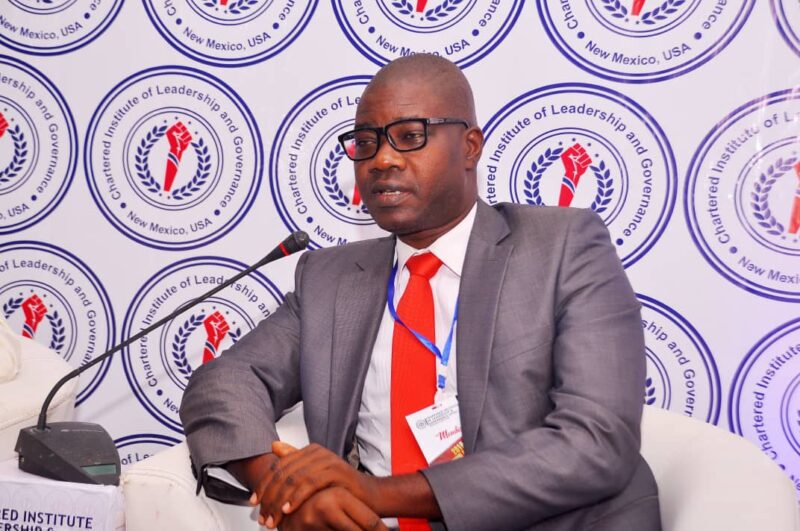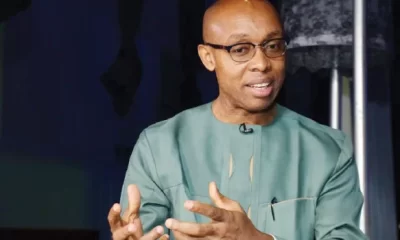Democracy & Governance
President Tinubu, Delay In Restructuring Could Be Dangerous -By Jide Ojo
The Daily Post of April 17, 2024, reported that the President has, again, reiterated his commitment to restructuring Nigeria in a manner that every citizen will experience good governance. The president reportedly restated this while playing host to some Yoruba elders, who paid him a courtesy visit at the Presidential Villa, Abuja on Tuesday, April 16, 2024, as disclosed by Jare Ajayi, National Publicity Secretary of Afenifere, shortly after the visit.

The National Assembly has set in motion committees to further alter the 1999 Constitution. President of the Senate, Godswill Akpabio, on February 14, 2024, constituted a 45-member Committee on Constitution Review chaired by the Deputy President of the Senate, Jibrin Barau. The House of Representatives Committee on Constitution Review had already issued a Call for Memoranda, enjoining Nigerians to submit memoranda or proposals for further amendments to the constitution on a variety of thematic areas, including the Nigeria Police and security architecture, public revenue, fiscal federation and revenue allocation, judicial reforms, electoral reforms, traditional institutions, gender-related issues, process of state creation, state access to mining, among others, as well as any other matter that will promote good governance and welfare of all persons in the country on the principles of freedom, equality and justice.
I had wished for an exercise that would be driven by the executive branch or the presidency. That was how the alteration carried out in 2010 under former President Umaru Yar’Adua was done. He initially set up the Justice Muhammad Uwais Presidential Committee on Electoral Reform in August 2007. The committee submitted its report in December 2008 and thereafter he sponsored alteration to the constitution as an executive bill. That was how we had a comprehensive review of electoral reform which among other things birthed financial autonomy for the National Assembly and the Independent National Electoral Commission, the reduction of judges of election petition tribunal from five to three, reduction of the qualification age for INEC chairman from 50 to 40 and those of National Commissioners from 40 to 35. The amendment also led to the situation where Resident Electoral Commissioners who hitherto were appointed by the president and inaugurated without Senate screening and confirmation now have to pass through Senate confirmation as the INEC chairman, and National Commissioners.
I am of the considered view that the constitution review committee of the National Assembly should first harvest the thoughts of President Bola Tinubu on restructuring that will need constitutional alterations. That way, the National Assembly will not be ‘flying blind.’ This is because any alteration proposed by the National Assembly and state Assemblies that does not sit well with the president will be rejected by him. That was why under former President Muhammadu Buhari, a lot of resources were spent to review the constitution in 2018 and 2023 yet, only a few of the proposed items were signed into law by the president.
Procedurally, this is the ideal time to know if the president will convoke a Sovereign National Conference or National Conference to debate and agree on issues that will warrant restructuring. I am all for a process-led, autochthonous and pro-people brand new constitution but it doesn’t seem Tinubu is inclined towards that. The Daily Post of April 17, 2024, reported that the President has, again, reiterated his commitment to restructuring Nigeria in a manner that every citizen will experience good governance. The president reportedly restated this while playing host to some Yoruba elders, who paid him a courtesy visit at the Presidential Villa, Abuja on Tuesday, April 16, 2024, as disclosed by Jare Ajayi, National Publicity Secretary of Afenifere, shortly after the visit.
On the specific issues raised by the Afenifere leader, the President said, “I have listened to your advocacy (on restructuring etc). What you believe in is what I believe in constitutional democracy has been reflected since we took over.” He stated that there is a pressing need to lay a solid foundation for an enduring project like restructuring. Specifically, Tinubu declared that the economy of the country needs to be re-tuned, revamped and re-engineered. “When the economy is properly on a firm footing, steps will be taken on restructuring so that it would be on a solid foundation. As I said in Akure, our approach to it would be as if a baby is learning how to walk. If the baby is rushed, it will fall….”
One year is already gone in the four-year tenure of Tinubu. Effectively, he has two more years of undistracted governance before the politics of re-election will take the larger chunk of his fourth year in office. So, when is the president’s ideal time to restructure? The economy he wants to revamp will need to be restructured in order to rebound and flourish. Some of the issues being canvassed for restructuring include fiscal federalism, resource control, and the devolution of powers from the exclusive legislative list to the concurrent legislative list. Among the items to be devolved is the issue of solid minerals and mining. Sincerely speaking, procrastination on restructuring can be counterproductive and lead to more restiveness as well as agitation for self-determination by sections of the country.
Right now, the Federal Government seems to prefer a piecemeal approach to restructuring which is why the issue of state police is receiving premium attention. However, that will be more expensive. At what time are we going to revisit other germane issues like local government autonomy, electoral reform, system of government (whether to transit back to the parliamentary system or retain the presidential system), reduction in the size of political offices, revenue allocation sharing formula, referendum, constitutional role for traditional rulers, etcetera.
This year is the most auspicious time to drive the issue of restructuring when the politics of the 2027 elections is still far away. I am therefore using this medium to make a passionate appeal to the president to kick-start the process by making public the restructuring agenda that he wants Nigerians to key into. The National Assembly and state Assemblies have pivotal roles to play given their power of lawmaking but I just want a streamlined process with a proper timeline of when it will be concluded. Once the executive and legislative arms are in consonance on any issue, elite consensus is easily achieved and a lot of time and financial resources are saved. I strongly believe that a well-thought-out restructuring agenda can be achieved in a year, but it must start in earnest.
X: @jideojong



















